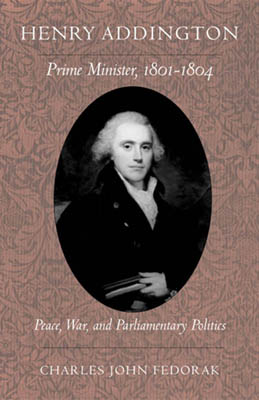Description
No modern British Prime Minister has been so thoroughly misunderstood or simply dismissed as Henry Addington. Fedorak demonstrates that, contrary to the views of his opponents and many historians, Addington was an astute and effective Prime Minister. His fall after three years in office was the result of a complex train of circumstances in which questions of personality, both within and outside the government, played a major part.
Addington, who had no ambition for higher office, agreed to become Prime Minister only because his predecessor, William Pitt the Younger, and King George III insisted. He immediately faced the serious and difficult challenge of leading a relatively inexperienced Cabinet to deal with a series of military, diplomatic, economic, and social crises caused by war and famine. Fedorak demonstrates that Addington dealt with these crises as successfully as the circumstances would allow and left a lasting mark on British politics. He negotiated peace with Russia, Denmark, Sweden, and France. He repaired the government finances, delivered the first modern budget speech, and ameliorated social unrest. After boldly declaring war on France in 1803, he doubled the productivity of the Income Tax, and raised more than 600,000 men at arms to fight the French.




